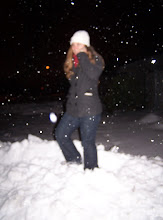As I read Kathleen E. Welch's Ideology and Freshman Textbook Production: The Place of Theory in Writing Pedagogy, I couldn't help but remember my own undergraduate composition courses. I remember very well those modes Welch discusses. I never understood what exposition was and when I would ever use it in a real life writing scenario, and I always wondered what made one argument more persuasive than the next. I also remember poring over models the instructors gave the class, trying to figure out how to write something as moving as Martin Luther King Jr.'s " I Have a Dream." Or attempting to write something as creative as Margaret Atwood. Mostly, I left class feeling frustrated and defeated.
This is why I particularly like the Norton Field Guide writing textbook. While I encourage students to read it (I don't look kindly on those who don't read) and use it in the classroom, I do agree with Welch when she says, "the textbooks are instruction material more important for the writing teacher than for the writing student." I find myself underlining points in the book that I want to highlight for my students, strategies I think they will find useful. I also take some of the strategies presented in the text and model them in class. To the point, I use the textbook to help me learn how to teach, but I don't completely rely on it for my classroom instruction. But I think that although the NFG includes sample essays and exceprts, it usually attempts to contextualize the excerpt for the student writer, emphasizing the rhetorical importance and rhetorical situation of the piece of writing at hand.
Welch argues that we should "press forward the movement to subordinate the status of the textbook in favor of student text production." I don't think we can completely do away with the textbook or sample writing (it is useful to analyze a text and how it works when undertaking a new writing project), but I agree with her that student writing should be priority. To this end, I have been having my students draft portions of their papers and bring them to class, working on Paper 2. I had one of them email a copy of their draft to me with the last paper, and I printed it out on a transparency. As a class, we read through the writing. We didn't try to fix grammar or sentence structure. Instead, we focused on what the text was doing and how it did it. The student/volunteer left with a lot of notes and suggestions. And the other students were able to see a project unfinished and unpolished. They are all also more comfortable workshopping one another's drafts.
So, yes, I agree with Welch that we should throw out the perfect excerpts and samples, or at least push student writing to the foreground.
Subscribe to:
Post Comments (Atom)

No comments:
Post a Comment